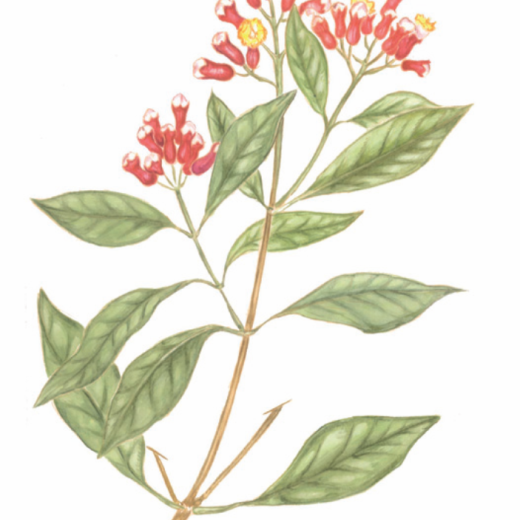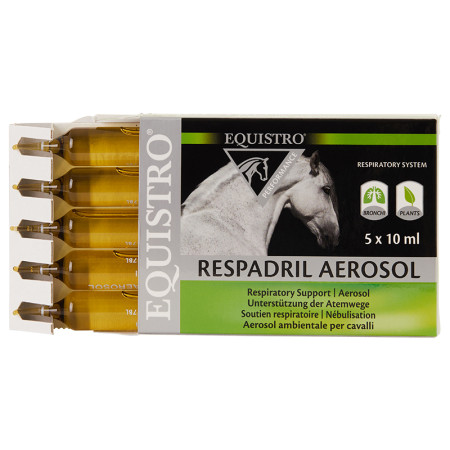
Clove
Clove essential oil is rich in substances with antioxidative and antibacterial effects. It can contribute to a healthy function of the respiratory tract in horses.
Description
Clove oil is an essential oil of plant origin which is extracted from the dried buds, leaves or stems of the clove tree by steam distillation.
Properties
Clove is rich in volatile oils principally eugenol (70-90%), eugenyl acetate (17%) and B-caryophyllene as well as flavonoids, galloytannins, phenolic acids and triterpenes. Clove oil has antihistaminic and antispasmodic properties, most likely caused by eugenyl acetate. Furthermore, clove oil has mild antiseptic properties which have been attributed to eugenol.
Possible uses
The eugenol contained in clove oil in particular has been described as having antibacterial properties which, in combination with the antioxidant effects of clove oil, can have a positive effect on respiratory health.
Impoertant to know
- The small particle size enables rapid absorption through the skin and mucous membranes so that the active ingredients can quickly enter the bloodstream
- Eugenol can have a neurotoxic and tissue irritating effect when used undiluted
- For preparations of clove oil to interact with other medicines administered concurrently, particularly those with similar or opposing effects, should be considered
- The Food and Drug Administration (FDA) classifies all types of clove oil (from buds, leaves and stems) and the eugenol contained as the main ingredient as generally safe

